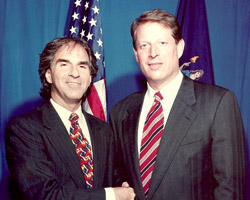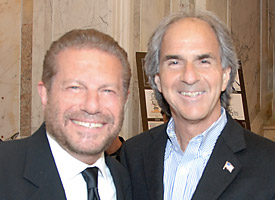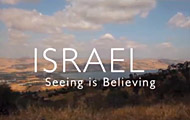Published in The Long Island Jewish World/ Manhattan Jewish Sentinel
WE JEWS: Book Review and Conversation with Rabbi Adin Steinsaltz
Who Are We And What Should We Do?
By Rabbi Adin Steinsaltz
204 pp. Josey-Bass Books. $24.95
BY HOWARD TEICH
A common discussion in Jewish Leadership circles is related to Jewish continuity, how do we continue our Jewish heritage in a world where assimilation and intermarriage are common, and where Jewish illiteracy has reached epidemic levels. Unfortunately, most Jews do not know our history, what has made us become a unique people. And, certainly an in-depth knowledge of our greatest gift, the Torah, is limited to a small minority of our community.
How does this prepare us for the future as a Jewish people? For too many Jews today, the goal is a good life, where the traditional values of the Jewish community do not merit their priority. What will it take to have an optimism for a positive Jewish future?
There could be no better commentator on these issues than Rabbi Adin Steinsaltz, who has been called a “Once-in-a-Millenium Scholar” by Time Magazine, and regarded internationally as one of the greatest rabbis of this century and the last. Rabbi Steinsaltz has published over sixty books on the Talmud, Jewish mysticism, religious thought, sociology, historical biography and philosophy, and he is a recipient of many international prizes and awards. To me, he is a legend of our time who has profoundly impacted the potential future of the Jewish people. He is an Orthodox Rabbi living in Israel who has attracted followers in all branches of Jewry. He was born into a secular Jewish family, and yet his translation and commentary on the Talmud have more people studying the Talmud today than in any other single Jewish generation.
So, you can imagine how extraordinary it was for me to have been given the opportunity to review his new book, “We Jews: Who are We and What Should We Do?”, with the added feature that I specifically requested, of having a personal conversation in my law office with Rabbi Steinsaltz about the issues arising from the book.
My conversation with him was really the expression of what he sets up in the book for further study between individuals, and in groups, in your synagogues and around your family tables. I couldn’t have been more fortunate than to have spent the time directly with him. He said to me as we began what was a scheduled 1½ hour conversation, that there should be no time limits. “A conversation should continue, should flow until two people are exhausted.” And the same should be said for your time with this book. Don’t set time limits, and explore it.
I was first introduced to Rabbi Steinsaltz through one of his previous books, “The Thirteen-Pedalled Rose,” which was given to me by a good friend and an important Chasidic Lubavich woman, Devorah Halberstam (her eldest son Ari will always be in our memories after he was murdered by terrorists on the Brooklyn Bridge in New York). I re-read that book to prepare for our conversation, and I realized how much I did not learn on my first reading of it. That was true of this book also, which I read three times. That’s the work of Rabbi Steinsaltz, and why he has such a profound reputation. His works should be studied and enjoyed by all of us.
If you are someone who quickly reads a book, and puts it aside, this book, We Jews, is not for you. You certainly can gain something from the experience. The value is in the second and third reading, and spending time with it so you can think about the questions Rabbi Steinsaltz raises, and how we should approach them. Rabbi Steinsaltz doesn’t give answers, as he said to me in our conversation, he raises the issues, and gives the context in which to consider them.
Do not confuse that with his not having strong opinions. Rabbi Steinsaltz said to me that this is not an apologetic book, and it is not flattering. He describes the book in his Author’s Introduction as a private, intimate conversation within the Jewish family. It is a journey through the Jewish people, looking at such topics as whether we are a Nation or a Religion, why our numbers have grown so little and the character traits resulting from the limited growth, why do we want to save the world, how does our Jewishness effect our thinking processes, how does anti-Semitism effect other cultures, and what is our future, among other topics.
Rabbi Steinsaltz explores whether we are defined by our money. It appears that we historically didn’t have a lot. Jews were agricultural people in the early days, and then as they became more integrated into other societies, they often had to choose other occupations since they could not be landowners. So they became merchants, professionals, and of course we all know the famous character of the moneylender. Certainly, this would make one think that Jews had money until, as an example, one learns that the margin was 3% on money, and often the Jewish moneylender had less money than the person who needed the loan.
Rabbi Steinsaltz does not believe that historically Jews have been driven by money, rather by scholarship. There have been rich Jews, and sometimes the way they have conducted themselves has not served our people, and often they could only invest in our Jewish institutions, for they were restricted from other investments. It is fascinating to see the historical perceptions, the limitations that led us, as Jews, to be the way we are today. And Rabbi Steinsaltz takes us on a wonderful tour of the history, and the results.
The messianic goal of the Jewish people is very real to him. Our commitment to making this a better world is a significant aspect of being a Jew, whether we practice being a Jew or not. It is inherent within us, as he sees it. “The rational question – ‘Who appointed you? Who gave you the authority to act in this sphere?’ – is one that a Jew does not ask himself.” It is asked by others. This way of being often has set up anti-Semitic reactions, and it also puts us at leadership of secular movements based on our view of the world as Jews. He explores this in a chapter where he looks at Marx, Freud, Einstein and others, and the significance of their contributions.
And he explores what it means to be Jewish, without having a singular definition. He spends a chapter exploring why we are not a race or Nation, why we are not an ethnic group, why we are not a religion, and why we have no common unifying factors. The issue for him is finding “what is the fundamental essence, the basic connection that determines who or what a Jew is?” In the final analysis, he sees us as a family. We learn about our ancestors, and some of our history, and how it determines his thinking process. What an opportunity to experience his approach to the issue. And he sees that once a Jew, always a Jew, even when a Jew converts.
And yet, Rabbi Steinsaltz sees Torah study and learning as a mandatory part of being Jewish in our world, and of creating the possibility of reaching that level of a messianic world. It is not good enough for him that a Jew makes a secular contribution to the world, as being a Jew, for he expects more to be Jewish. He won’t draw the exact line of where Jewish learning and practice is sufficient, and you know in his mind there is a line, and he wants you to find out for yourself.
He calls what’s happening in America, “Jewish-style.” In our conversation, he told me the story of a Jewish woman who salted her bacon when she eats it, so by salting it her children would know something of being Jewish, the Jewish tradition of salting. What a laugh we had! And Rabbi Steinsaltz emphasized it was a true story. He followed with another story of meeting a young Jewish woman reporter at an event he was doing with the Dalai Lama. He asked her about becoming a Buddhist, and whether she missed her attachment to Judaism. She said to him, “What is Judaism – matzoh balls and gefilte fish, and anyway I am a vegetarian.”
In our conversation, he said to me that Judaism stands on three legs: Faith, Commandments, and Knowledge. It’s not easy being a Jew. It takes work. The commandments are demanding, and Jews don’t want to pay for them. He thinks Americans want a $5 religion. That’s not Judaism in his eyes. Rabbi Steinsaltz emphasizes that there’s no $5 jet fighter of value. And you cannot live up to the Jewish challenge of “inheriting the earth” on that basis. He told me he saw that in Israel also. Before the establishment of the State of Israel, Jews expected to suffer. Today, the issue isn’t land for peace, it’s land for Mitsubishi. People want a good life.
Although I fully understood his point, I wanted to explore with him why it was so difficult to involve Jews in our extraordinary vision and mission, which has as an outcome a messianic era in which the good shall inherit the earth, and there shall be no suffering, hunger or poverty.. Why couldn’t we develop some Madison Avenue approach that would work? His response was that it was difficult, and not such a Paradise to get there, depending on who you are. There is a requirement of being a better human being, and the demands are high to train people for that role. That training may require, as an example, the righteous to sit with crowns on their head, and study. As he said to me, that’s Paradise to some people, and to most others it is not. Rabbi Steinsaltz put it even more directly, “you cannot be a hero by sitting on a couch. There’s a whole framework for being a better human being. Inheriting the earth is a big challenge.”
At the end of each chapter, he has a short Question and Answer section. You cannot leave this book without remembering vividly his answer to the question posed that many Jews want to be Jewish without that “religious stuff.” He answers, “Judaism is religious stuff. It’s not just kneidlach and gefilte fish. If you try to do it without the ‘religious stuff,’ in the end what you’ll have is just manufactured fish and fake kneidel.”
So, unavoidably and deliberately, I opened the discussion of our Jewish leadership of today. In the book, he points out that rarely have we ever had one Jewish leader, and the same can be said for one Jewish Chief Rabbi. In the book, Rabbi Steinsaltz walks us through our history of divided leadership from the time of the Second Temple and beyond. He sees the Diaspora as having made the most significant contribution to this division. Some differences were left purposefully for intellectual stimulation, as differences in interpretation in the Mishnah.
His warnings of the impact of Sin’at Hinan (causeless hatred), where Jews could not and have not become unified in some of the most disastrous of times such as the Warsaw Ghetto uprising, is ominous for the future, at a time that he sees us more fractionalized than ever. Only Rabbi Steinsaltz could state, as he does in the book, that it is too bad that a “supreme council of Elders of Zion exists only as an anti-Semitic fabrication, for we could use it today.”
In our conversation, he shed light on his views of anti-Semitism, and Jewish leadership today. It’s important to share them, for they are insightful, and certainly will be offensive to some, and welcome by others. Rabbi Steinsaltz calls them as he sees them.
Rabbi Steinsaltz feels we over-react to anti-Semitism today. He admits that he thinks as an Israeli. In Israel, he’s a majority as a Jew. And to illustrate the point, he described to me that he plants a tree in his garden in Israel, and to him that is permanent. It’s his land, and it won’t be taken away. In other countries, Jews are less permanent, and more sensitive. He doesn’t see anti-Semitism as a danger in America. In Russia, Jews are not hated, in fact he says that most intermarry. The Israeli view of the Diaspora’s anti-Semitic cry is perhaps nasty, he says, “If they feel there is anti-Semitism in their country, they should come to Israel.” He sees it as a worldview, and too much emphasis on it by certain leaders today.
Leadership is a key issue for Rabbi Steinsaltz. He sees too many self-established Jewish leaders without the necessary Jewish background and knowledge to lead us. He is bothered by the lack of democratic processes to elect our leaders today. “Leaders in America make speeches for newspapers, and people don’t really care for them. So, there’s a distance. And there’s little contact with the masses.” He told me he was almost lynched once when he gave a speech in a synagogue, and he said that some Jewish leadership giving in America was “indulgence giving”: $20,000, allowed you to eat bacon; $50,000, allowed you to drive on Shabbat: and $200,000, allowed you to marry a non-Jew. When one person in the audience angrily said, how can you say that when we raised $2 million for this Temple, he answered, for what sin was that? He doesn’t mince words, nor duck controversy.
He does feel that there must be a change if we are to attain a more optimistic Jewish future, one in which we can set the groundwork for the future messianic era. Jewish leadership must be educated in Judaism, otherwise he wonders why they don’t take the same money they used to attain their Jewish leadership, and run for Congress with their secular ideas. And he says, Jewish leadership is such a thankless job anyway. His main point is that Jewish leaders must be Jewish, with the trappings of Faith, Commandments and Knowledge to be true Jewish leaders.
He told me two stories on leadership, with two points – both true stories he says. Rabbi Steinsaltz gave one of his books written in Hebrew to an American Jewish leader (he wouldn’t say his name). He described him as a nice guy, but when the leader took the book he held it upside down. Rabbi Steinsaltz couldn’t understand that this man could be a Jewish leader, and not even read Hebrew. He couldn’t understand that this man would take on the mantle of Jewish leadership. He compared this situation to a proposed successor to Theodore Herzl, when Herzl died, who was more famous than Herzl, was a philosopher, with great achievements for the Jewish community. He declined the offer of leadership because he had a non-Jewish wife.
Rabbi Steinsaltz in his Author’s Introduction says that “the aim of the book is an attempt to see causes and consequences, achievements and failures, and to look at the contemporary world as we, as Jews, observe our dreams and longings.” His purpose clearly is to further our thinking, and to draw our own conclusions. He succeeds in this, and we will all be the more learned, and richer in the way he would like to see us, as we experience the book. .
As my conversation with Rabbi Steinsaltz began, I said to him that I had to open the discussion from the closing of the book, where he says that in building our future there is a lot of hard work ahead. He proposes a commentary on our approach, “There is an expression in the United States: ‘Put your money where your mouth is.’ Instead he said, he would say that people have to put their lives, their souls, where their money is. This is much more difficult.”
Earlier in the conversation, I told Rabbi Steinsaltz that I knew this day was special, for a goat passed me on the sidewalk as I walked to the office. I had never seen a goat on the streets of New York. And yet, I told him that I remember that the father (of blessed memory) of a close friend of mine, very successful in this country, coming originally from Eastern Europe, said that what was missing in America was goats. That there were always goats in Poland. So this very day, for the first time, I saw a goat on the streets of New York.
The last topic in our conversation was when I told him of being in a meeting in Israel with then Prime Minister Shimon Peress, when we were all looking to the years beyond peace. The Prime Minister talked of bringing together in Europe a host of Jewish leaders from throughout the world on the 100th Anniversary of Herzl’s death to discuss the future of World Jewry. It never happened, and I said toRabbi Steinsaltz that I thought we needed to do that today. Rabbi Steinsaltz said it is not easy, for the result is based on who you invite to the table, and finding the right, knowledgeable leadership is not so easy.
He then told me a Talmudic story, in concluding his point, that when the shepherd was angry with his herd, he would put as the leader a blind goat. He then said, “Such a nice story.” That’s the feeling you get in conversation with Rabbi Steinsaltz. Always a story, always a feeling in it. His point, as he then said, was how can you discuss the Jewish future if there is no knowledge.
Clearly, I still was looking to have his thoughts on the Jewish world of today, and whether as many see it, the Golden Calf rather than commandments have won out. Time ran out, and that question remains open. Perhaps it is another conversation, or another book, or perhaps that is a question for the future depending upon whether we do the hard work he suggests is needed.
Read this book, and more of Rabbi Steinsaltz’s writings. Let the hard work begin. After reading Rabbi Steinsaltz, you will be convinced that we must dream again, for now more than ever, we must be determined that the best of the Jewish possibility lies ahead.
______________________________________________________________________
HOWARD TEICH is an attorney in New York City, who has held many New York and National leadership positions in the Jewish Community.






